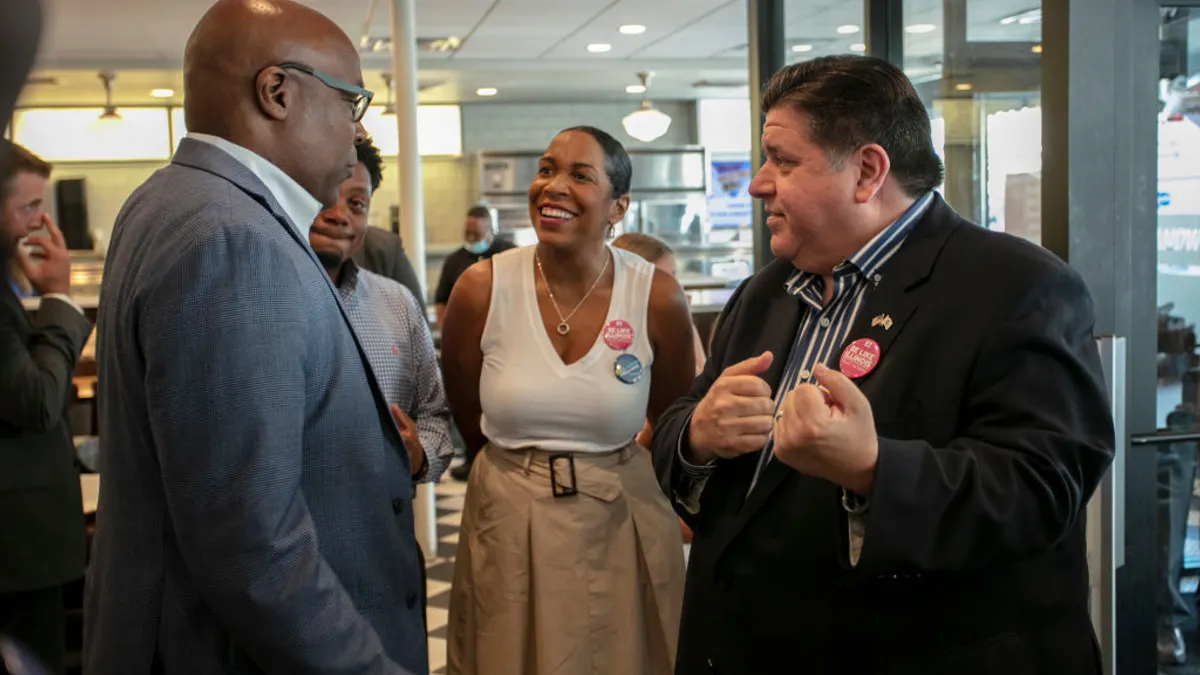Stakeholders can once again directly ask the federal government wage and hour questions and — hopefully — get a response. And while the system isn’t perfect, it is perhaps the best option available right now, those in the business community say.
The Obama administration scrapped the long-standing practice of issuing “opinion letters,” answers to specific questions sent to the U.S. Department of Labor’s (DOL) Wage and Hour Division (WHD), in favor of more broadly applicable “Administrator’s Interpretations” (AI). Employer groups weren’t happy, as opinion letters could serve as a complete affirmative defense in litigation involving, among other laws, the Fair Labor Standards Act.
But last year, President Donald Trump’s DOL announced a return to opinion letters, just weeks after the new Secretary of Labor was confirmed. WHD kicked off this move by reinstating 17 Bush-era letters. And while the usefulness of those particular letters may be limited, employers are certainly hoping to make use of the broader program again.
Reinstated letters
WHD’s reinstated letters (available on its website and numbered FLSA2018-1 through FLSA2018-17) are holdovers from the President George W. Bush years, Tammy McCutchen, a former WHD administrator, told HR Dive. McCutchen served as administrator during Bush's first term.
In the days leading up to President Barack Obama's inauguration, there were several letters signed by then-acting WHD Administrator Alexander J. Passantino. For reasons about which watchers love to speculate, they were never mailed. By McCutchen’s court, there were 18.
And because they were never mailed, the Obama administration withdrew them, McCutchen explained. “I know of two that were actually faxed to the employers who asked for them,” she noted. “Some of them did get to the people that had requested them.”
Following eight years of AIs, the Trump administration decided to shift back to opinion letters, reconsidered those withdrawn Bush-era letters and opted to reinstate, according to McCutchen, 15 of the 18. It also elevated two non-administrator letters to official opinion letter status, bringing the total to 17.
The letters, reinstated on Jan. 5, deal with a variety of topics, from overtime exemptions for construction supervisors to a collective bargaining agreement provision affecting firefighters. Two, in particular, have garnered a bit of attention, FLSA2018-7 and FLSA2018-14, as they deal with salary deductions for absences.
But because so many years have passed since they were requested, their assistance to the employers that requested them is likely limited, Jeremy Glenn, member at Cozen O’Connor, told HR Dive.
However, opinion letters can serve as a partial defense for other employers who rely on them in good faith, Glenn noted, so they may be worth a look. “But, you can’t have relied on it until January 5th,” he said; “[an] opinion letter doesn’t help you in the past.”
Passantino, now a partner at Seyfarth Shaw, did not return a request for comment.
An imperfect system
Part of the reason Obama's WHD made the switch to AIs was to address issues in a broader way — potentially benefiting more stakeholders, it said. DOL officials from the Obama era and employee groups have decried the switch back, alleging that the opinion letter system favored employers.
Employers previously hired attorneys to speak with WHD before submitting letter requests, allowing them to only ask questions they knew would yield a favorable answer, wrote Sharon Block, former principal deputy assistant secretary for policy at DOL, on OnLabor.
Management attorneys, however, disagree that AIs were the right fix. “Yes, there’s some risk that if you get the right attorney you’re going to get a better result [with opinion letters],” McCutchen said. But the risk is small, she said, adding that she doesn’t believe those factors would result in a letter that isn’t legally sound.
Anybody, including employees and unions, can request an opinion letter, noted McCutchen, now principal at Littler Mendelson. And those requesting letters must make a representation that they’re not submitting a question that is related to an ongoing investigation or claim. The division's administrator must serve as a safeguard, too, she said. “I had [someone] come to me wanting a particular opinion letter; I refused,” McCutchen said. “I’m not going to write an opinion letter that I think is wrong. We’re attorneys; [we have] ethical rules.”
The opinion letter system might have been flawed, McCutchen said, but the Obama administration threw the baby out with the bathwater.
Loren Gesinsky, a partner at Seyfarth Shaw, agreed. “I don’t think that opinion letters alone are a perfect mechanism," he said. "They can be very narrow. They can … become outdated." But with AIs, there was no vehicle for the employer community to communicate with DOL constructively, he told HR Dive. So even if the opinion letter system is imperfect, it’s better than employers receiving no feedback at all, he said.
Looking forward
It remains to be seen when WHD might begin answering new letters. The division is still without an administrator, as Trump's nominee for the position, Cheryl Stanton, has yet to be confirmed by the Senate. And it's unlikely employers will see any new letters until she (or someone else) is confirmed, McCutchen said; "I think they’ll want her to have a say."
And once WHD does start answering letters, it's not yet clear how many it will be able to tackle. Some previous administrations were prolific; others were criticized for issuing what some felt were too few letters. McCutchen says the division has a responsibility to answer as many questions as resources allow, and that it should prioritize those that affect a broad segment of stakeholders.
But one thing's for sure: Employers are looking forward to more carrots than sticks with this administration, and opinion letters are one piece to that DOL enforcement policy puzzle. "There are certainly big corporations out there that don’t really need their help but there are others … who have no ill will, who want to do generally the right thing" and who need the compliance assistance, Gesinsky said.
The reinstatement of the opinion letter program is one step toward the administration's stated goal of providing compliance assistance rather than just waiting to claim "gotcha," Gesinsky added; "That’s the big takeaway from our perspective."




















